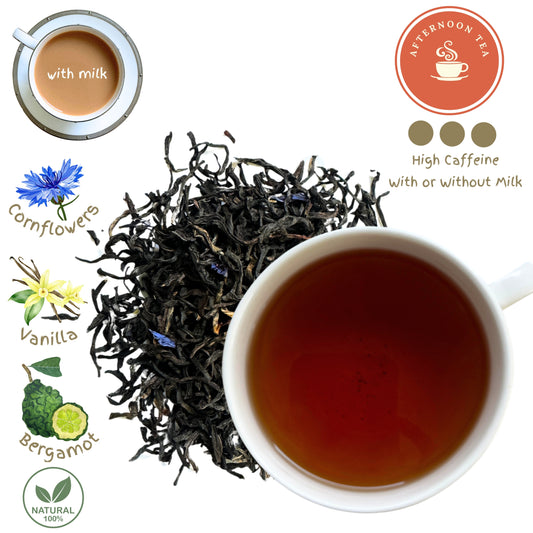Exploring the World of Green Tea
Green tea, with its light, refreshing flavor, and numerous health benefits, has become a staple in many households worldwide. Let's delve into various aspects of green tea, from its origins and how it's made to its potential health benefits and common questions.
Please note that the information provided is not verified by a medical perspective, and it's always best to consult your physician for personalized advice.
What is Green Tea?
Green tea is made from the leaves of the Camellia sinensis plant, which undergo minimal oxidation during processing. This minimal oxidation process helps retain the tea leaves' green color and delicate flavor. Green tea has a rich history, originating in China and spreading across Asia and eventually the world.
maNASA Ceylon Green Tea
How is Green Tea Made?
The production of green tea involves several steps:
- Harvesting: Young tea leaves and buds are picked.
- Withering: The leaves are laid out to wither and lose some moisture.
- Steaming or Pan-Firing: The leaves are quickly heated to prevent oxidation.
- Rolling: The leaves are rolled to shape and release their essential oils.
- Drying: The leaves are dried to remove any remaining moisture.
Are Green Tea and Matcha the Same?
While both come from the Camellia sinensis plant, they are not the same. Matcha is a type of green tea ground into a fine powder traditionally used in Japanese tea ceremonies. Matcha is consumed differently from regular green tea, as the whole leaf is ingested, providing a more potent source of nutrients.
Are Green Tea Shots Gluten-Free?
Typically, green tea is gluten-free. However, it is essential to check the labels of green tea shots or any flavored green tea products to ensure no gluten-containing ingredients have been added.
Are Green Tea Supplements and Pills Safe?
Green tea supplements and pills can offer concentrated doses of green tea's beneficial compounds. However, safety and efficacy can vary. It's crucial to consult with a healthcare provider before starting any supplement regimen to ensure it is appropriate for you. However, there's nothing better than drinking high-quality freshly brewed maNASA Green Tea to get the best of Green Tea's benefits.
Can Green Tea Help You Lose Weight?
Green tea is often associated with weight loss because it boosts metabolism and increases fat burning. While it can be a helpful addition to a healthy diet and exercise routine, it's not a magic solution on its own.
Can Green Tea Cause Diarrhea?
In some cases, consuming large amounts of green tea can cause gastrointestinal issues, including diarrhea. It's best to drink it in moderation.
Can Green Tea Lower Blood Pressure?
Green tea has been linked to lower blood pressure due to its antioxidant properties. However, the effects can vary, and discussing this with your doctor is essential, especially if you have existing health conditions.
Can Green Tea Cause Kidney Stones?
Some studies suggest that excessive consumption of green tea could contribute to the formation of kidney stones due to its oxalate content. Moderation is key.
Can Green Tea Make You Nauseous?
Green tea can cause nausea in some individuals, especially when consumed on an empty stomach. Drinking it with food may help mitigate this effect.
Can Green Tea Help with Constipation?
Green tea may help with constipation due to its mild laxative effect. However, this effect can vary from person to person.
Constipation is a common issue that many people experience at some point in their lives. It can be uncomfortable and frustrating, often leading individuals to seek natural remedies to alleviate the problem. One such remedy that has gained popularity is green tea. But can green tea really help with constipation?
How Green Tea Might Help
Green tea contains several compounds that may contribute to improved digestive health and relief from constipation:
- Caffeine: Green tea contains a small amount of caffeine, a natural stimulant. Caffeine can help stimulate bowel movements by increasing muscle contractions in the digestive tract, which can help move stool through the intestines more effectively.
- Antioxidants: Green tea is rich in antioxidants, mainly catechins. These antioxidants can help reduce inflammation in the digestive system, promoting better overall gut health and potentially aiding in regular bowel movements.
- Hydration: Drinking green tea adds to your daily fluid intake, and staying well-hydrated is crucial for preventing constipation. Proper hydration helps soften stool, making it easier to pass.
- Laxative Effect: Some studies suggest that green tea has a mild laxative effect, which can help stimulate bowel movements and relieve constipation gently and naturally.
Tips for Using Green Tea to Relieve Constipation
If you are considering using green tea to help with constipation, here are a few tips to maximize its potential benefits:
- Moderation: While green tea can be beneficial, consuming it in moderation is important. Drinking too much green tea can lead to other issues, such as diarrhea or dehydration, mainly due to its caffeine content.
- Timing: Drink green tea at times that align with your body's natural rhythms. For some, drinking it in the morning can help stimulate bowel movements early in the day.
- Hydration: Ensure you are drinking enough water alongside green tea. Proper hydration is essential for preventing and alleviating constipation.
- Diet and Lifestyle: Combine green tea with a diet high in fiber, regular exercise, and other healthy lifestyle habits for the best results.
When to Consult a Doctor
While green tea can be a helpful addition to your routine, it's essential to consult a healthcare provider if you experience chronic constipation or if your symptoms persist. Chronic constipation can indicate an underlying health condition that may require medical treatment.
Green tea offers several potential benefits for those struggling with constipation, thanks to its caffeine content, antioxidants, and ability to contribute to overall hydration. However, it should be consumed in moderation and as part of a balanced diet and healthy lifestyle. As always, if you have any concerns about your digestive health, it's best to consult your physician.
How Does Green Tea Help with Weight Loss and Reduce Cholesterol?
Green tea's catechins and caffeine can enhance metabolism and fat oxidation, aiding in weight loss. These compounds also contribute to lowering LDL cholesterol levels and promoting heart health. However, at maNASA, we do NOT advocate replacing your cholesterol medication with Green tea.
How Does Green Tea Benefit the Body?
Green tea is rich in antioxidants, which help combat free radicals in the body, reducing inflammation and protecting against chronic diseases.
Why is Green Tea Good for You?
Green tea is beneficial due to its high antioxidant content and potential to improve brain function, aid in fat loss, reduce the risk of certain cancers, and improve heart health.
Which Green Tea is Best for Specific Conditions?
- Fatty Liver: Green tea with high catechin content.
- Thyroid: Consult a healthcare provider as green tea may interact with thyroid medication.
- High Blood Pressure: Green tea with high flavonoid content.
- Diabetes: Green tea with low caffeine content.
- Weight Loss: Matcha or high-catechin green teas.
- Overall Health: High-quality Green tea with no additives.
Where Does Green Tea Come From?
Green tea originates from China, but it's also produced in Japan, Sri Lanka (Ceylon), India, and several other countries known for their tea cultivation.
Common Issues with Green Tea
- Nausea and Headaches: Some people experience nausea or headaches from green tea, often due to its caffeine content or when consumed on an empty stomach.
What Green Tea is Best for You?
The best green tea depends on your personal preferences and health goals. Choose high-quality green tea for the best benefits.
When to Drink Green Tea?
Green tea can be enjoyed at any time of the day. However, drinking it in the morning or early afternoon is ideal to avoid potential sleep disturbances from caffeine, especially Matcha with high caffeine content.
We hope this comprehensive guide helps you understand the various aspects of green tea and answers some common questions. Enjoy your tea journey with this wonderful beverage, and remember to consult your healthcare provider for any medical advice related to its consumption.











